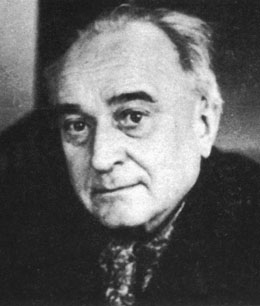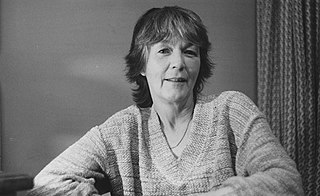Related Research Articles

Sir Edward Evan Evans-Pritchard FBA FRAI was an English anthropologist who was instrumental in the development of social anthropology. He was Professor of Social Anthropology at the University of Oxford from 1946 to 1970.

Jean Sybil La Fontaine FRAI is a British anthropologist and emeritus professor of the London School of Economics. She has done research in Africa and the UK, on topics including ritual, gender, child abuse, witchcraft and satanism. In 1994 she wrote a government report: The Extent and Nature of Organised and Ritual Abuse.

Sir Raymond William Firth was an ethnologist from New Zealand. As a result of Firth's ethnographic work, actual behaviour of societies is separated from the idealized rules of behaviour within the particular society. He was a long serving professor of anthropology at the London School of Economics, and is considered to have singlehandedly created a form of British economic anthropology.
Frederick George Bailey, who published professionally as F. G. Bailey, was a British social anthropologist who spent the second half of his career in the United States at the University of California, San Diego (UCSD). He received his Ph.D. in social anthropology from Manchester University, working under Max Gluckman, and is closely associated with the Manchester School of social anthropology. A prolific writer of some sixteen books in anthropology, he is probably best known for his studies of local and organizational politics. He conducted fieldwork in Bisipāra, Orissa, India, and has also written on political functions, particularly the ways that social structure arises out of and is used by the interactions of individuals.
Michael Parker Banton CMG, FRAI was a British social scientist, known primarily for his publications on racial and ethnic relations. He was also the first editor of Sociology (1966-1969).
Peter Maurice Worsley was a noted British sociologist and social anthropologist. He was a major figure in both anthropology and sociology, and is noted for introducing the term Third World into English. He not only made theoretical and ethnographic contributions, but also was regarded as a key founding member of the New Left.
Norman Long is a British anthropologist. He conducted important fieldwork and made significant theoretical contributions through his application of insights from social anthropology in development studies. Anthropology was in the wake of decolonisation often seen as tainted by colonialism and not relevant in a development discourse. Long offered another perspective that can not be seen as bound by time and place. He advocated an actor-oriented perspective on development and thus formulated a critique on centralist biases in development theory.
Carl Levy is professor of politics at Goldsmiths College, University of London. He is a specialist in the history of modern Italy and the theory and history of anarchism.
Wendy Rosalind James, is a British retired social anthropologist and academic. She was Professor of Social Anthropology at the University of Oxford from 1996 to 2007, and President of the Royal Anthropological Institute from 2001 to 2004.
Sheila Patterson was a British social anthropologist who specialised in race, immigration, and race and ethnic relations. She undertook research in South Africa, Canada, and the United Kingdom. From 1971 to 1987, she was editor of New Community, a journal published by the Community Relations Commission.
Dame Karin Judith Barber, is a British cultural anthropologist and academic, who specialises in the Yoruba-speaking area of Nigeria. From 1999 to 2017, she was Professor of African Cultural Anthropology at the University of Birmingham. Before joining the Centre of West African Studies of the University of Birmingham, she was a lecturer at the University of Ife in Nigeria. Since 2018, she has been Centennial Professor of Anthropology at the London School of Economics.
Joanna Overing is an American anthropologist based in Scotland. She has conducted research on egalitarianism, indigenous cosmology, philosophical anthropology, aesthetics, the ludic and linguistics through fieldwork in Amazonia. She has extensively studied indigenous Piaroa people in the Orinoco basin of Venezuela.
Heidi Safia Mirza is a British academic, who is Professor of Race, Faith and Culture at Goldsmiths, University of London, Professor Emerita in Equalities Studies at the UCL Institute of Education, and Visiting Professor in Social Policy at the London School of Economics (LSE). She has done pioneering research on race, gender and identity in education, multiculturalism, Islamophobia and gendered violence, and was one of the first black women professors in Britain. She is author and editor of several notable books, including Young, Female and Black (1992), Black British Feminism (1997), Tackling the Roots of Racism: Lessons for Success (2005), Race Gender and Educational Desire: Why Black Women Succeed and Fail (2009), Black and Postcolonial Feminisms in New Times (2012), and Respecting Difference: Race, Faith, and Culture for Teacher Educators (2012).
Cyril Daryll Forde FRAI was a British anthropologist and Africanist.
Adria Jean LaViolette is an American archaeologist at the University of Virginia. She is a specialist in Swahili archaeology and is the joint editor of The Swahili World.
Farouk Mohamedhusein Tharia Topan is the director of the Swahili Centre at the Aga Khan University. He is a specialist in the language and literature of the Swahili people. He has taught at the University of Dar es Salaam, the Institute of Ismaili Studies, and the School of Oriental and African Studies.
Andrea Cornwall is Professor of Global Development and Anthropology at King's College London.
Stephanie Wynne-Jones is an Africanist archaeologist, whose research focuses on East African material culture, society and urbanism. She is Senior Lecturer and Deputy Head of the Department of Archaeology at the University of York. She previously worked as assistant director of the British Institute in Eastern Africa (2005-2008) and remains a Trustee and Member of the BIEA Governing Council. In 2016, Wynne-Jones was elected to Fellowship of the Society of Antiquaries of London. Wynne-Jones is one of the Core Group at the Danish National Research Foundation Centre of Excellence in Urban Network Evolutions (Urbnet), Aarhus University. Between 2015 and 2017 she was a Pro Futura Scientia Fellow at the Swedish Collegium for Advanced Study, Uppsala.
Raminder Kaur is a Professor of Anthropology and Cultural Studies in the Departments of Anthropology and International Development at the University of Sussex. She has conducted fieldwork in India and Britain researching topics such as migration, race/ethnicity/gender, the creative arts, heritage, public culture, aesthetics, censorship, human rights, religion and politics, public representations of, and the socio-political, health and environmental implications of nuclear developments, and 'cultures of sustainability'.
Nici Nelson is an Africanist, social anthropologist and a Honorary Research Fellow in the Department of Anthropology at Goldsmiths, University of London. She obtained a PhD on Kikuyu women in Nairobi, Kenya, from the University of London in 1978 and has published on various fields such as urban anthropology, gender and sexuality, and marriage and households in East Africa. Nelson was President of the African Studies Association of the United Kingdom (ASAUK) in the years 2002-2004 and was one of the recipients of the ASAUK Outstanding African Studies Award in 2015-2016.
References
- 1 2 3 4 5 6 7 8 "CAPLAN, Prof. (Ann) Patricia (Bailey)". Who's Who 2017. Oxford University Press. November 2016. Retrieved 9 February 2017.
- 1 2 3 4 5 "Professor Pat Caplan MA PhD". Goldsmiths. University of London. Retrieved 9 February 2017.
- ↑ Caplan, Ann Patricia (1968). Non-unilineal kinship on Mafia Island, Tanzania (phd thesis). SOAS University of London. Archived from the original on 13 December 2020.